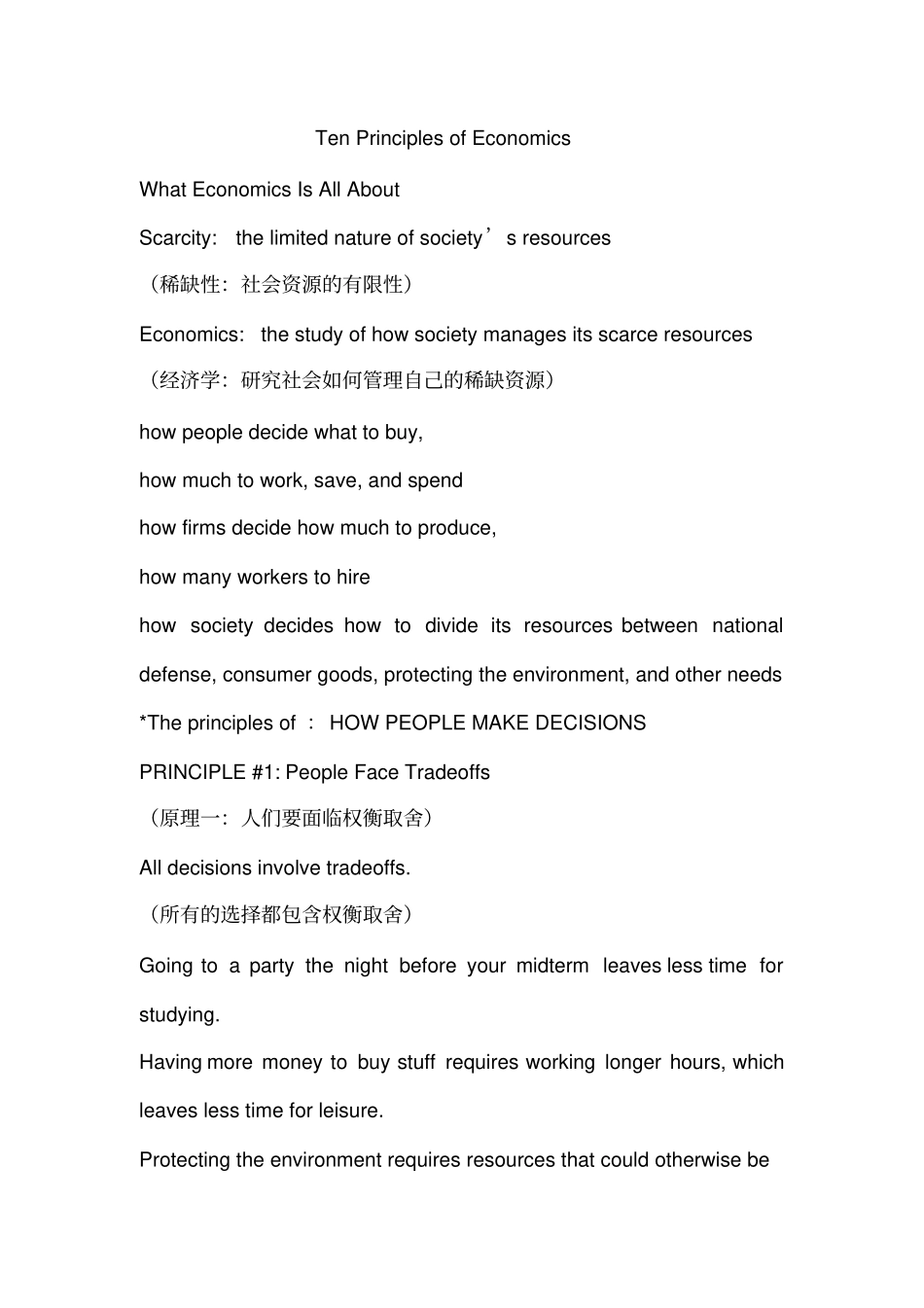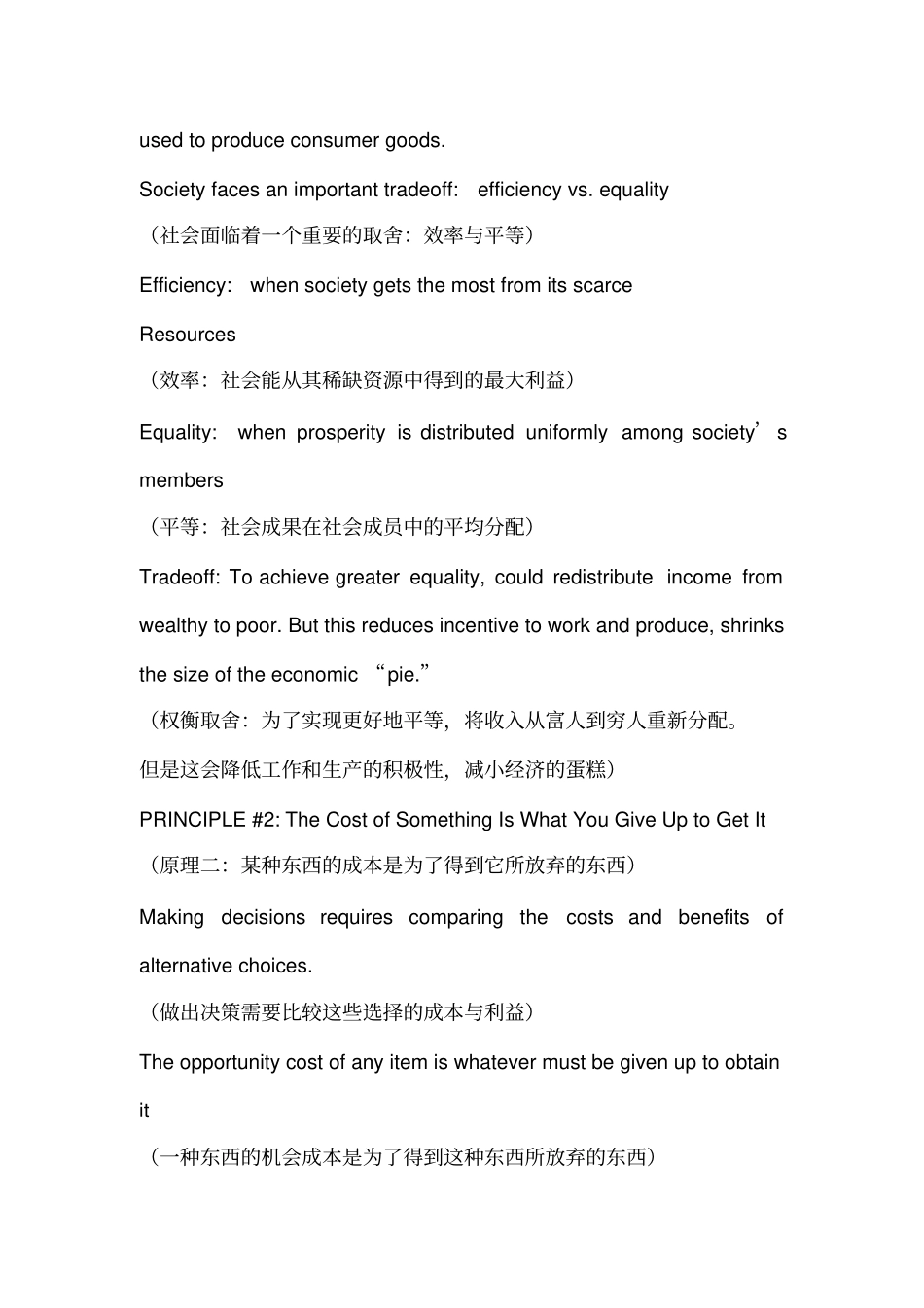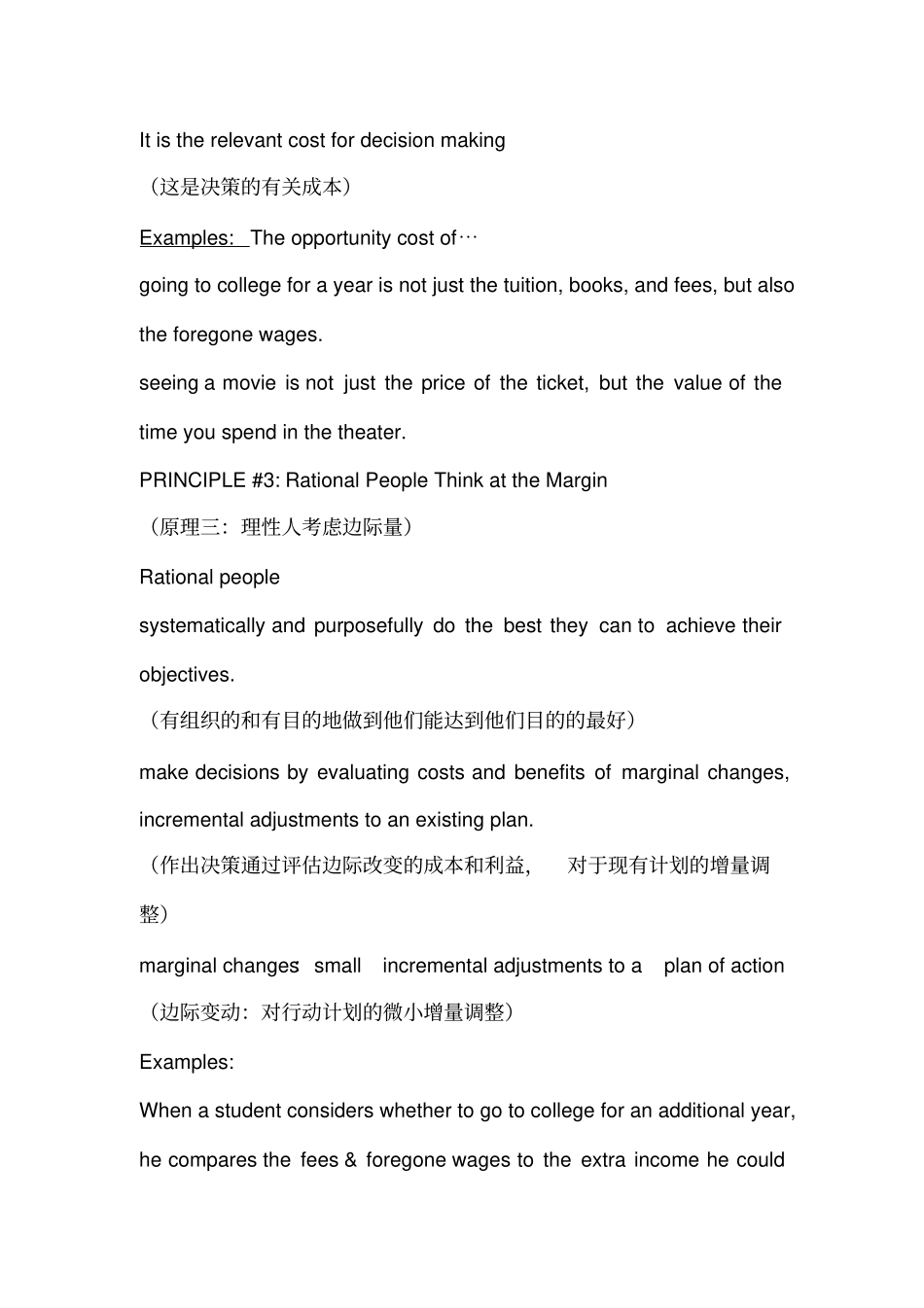Ten Principles of Economics What Economics Is All AboutScarcity: the limited nature of society’s resources(稀缺性:社会资源的有限性)Economics: the study of how society manages its scarce resources(经济学:研究社会如何管理自己的稀缺资源)how people decide what to buy, how much to work, save, and spendhow firms decide how much to produce, how many workers to hirehow society decides how to divide its resources between national defense, consumer goods, protecting the environment, and other needs*The principles of :HOW PEOPLE MAKE DECISIONSPRINCIPLE #1: People Face Tradeoffs(原理一:人们要面临权衡取舍)All decisions involve tradeoffs. (所有的选择都包含权衡取舍)Going to a party the night before your midterm leaves less time for studying.Having more money to buy stuff requires working longer hours, which leaves less time for leisure.Protecting the environment requires resources that could otherwise be used to produce consumer goods.Society faces an important tradeoff: efficiency vs. equality(社会面临着一个重要的取舍:效率与平等)Efficiency: when society gets the most from its scarceResources(效率:社会能从其稀缺资源中得到的最大利益)Equality: when prosperity is distributed uniformly among society’s members(平等:社会成果在社会成员中的平均分配)Tradeoff: To achieve greater equality, could redistribute income from wealthy to poor. But this reduces incentive to work and produce, shrinks the size of the economic “pie.”(权衡取舍:为了实现更好地平等,将收入从富人到穷人重新分配。但是这会降低工作和生产的积极性,减小经济的蛋糕)PRINCIPLE #2: The Cost of Something Is What You Give Up to Get It(原理二:某种东西的成本是为了得到它所放弃的东西)Making decisions requires comparing the costs and benefits of alternative choices. (做出决策需要比较这些选择的成本与利益)The opportuni...


